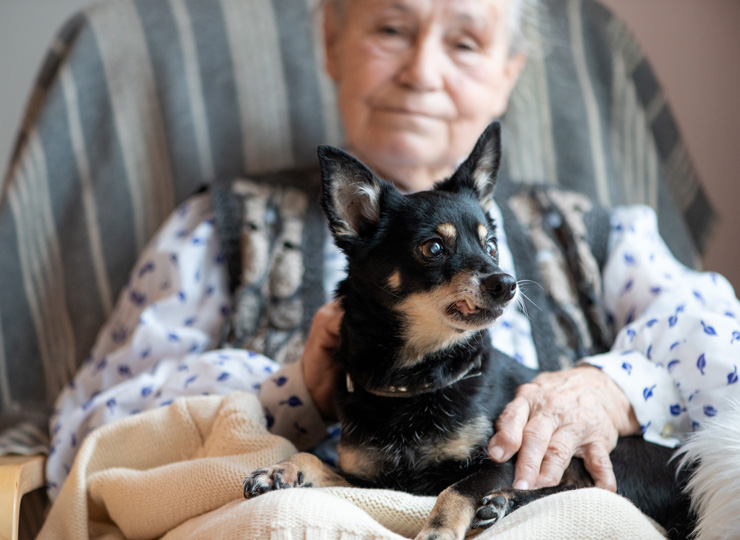
January 24, 2024
Older men and women who live alone but have a pet had fewer memory problems than their solitary peers, according to a new report. The findings add to growing evidence that having a cat, dog or other animal companion is good for the brain and may help to lower the risk of developing Alzheimer’s disease.
The study, from researchers in China, looked at 7,945 men and women aged 50 and older who were living in Britain. Their average age was 66. They were asked how many people lived in their home, and whether they had any pets. About 27 percent lived alone, and just over a third had pets. They also underwent regular tests of thinking and memory skills.
The researchers found that among those who lived alone, having a pet was associated with less decline in verbal memory, verbal cognition and verbal fluency. Drops in those measures suggest more difficulty in remembering things you’ve heard and finding the words to express yourself, which can be signs of cognitive decline and an increased risk of developing dementia.
Having a pet did not produce similar benefits for older people who lived with a spouse or others. The findings were published in the journal JAMA Network Open.
The authors note that having a pet may help to mitigate loneliness, which has been tied to an increased risk for Alzheimer’s disease. “Contrary to living alone, pet ownership — for example, raising dogs and cats —is related to reduced loneliness, an important risk factor for dementia and cognitive decline,” the authors wrote.
Earlier research has found that older adults who reported feeling lonely have triple the risk of developing Alzheimer’s disease or other forms of dementia than their less lonely peers. Loneliness has also been linked to a diminished ability to make decisions, to plan, to be flexible in your thinking and to pay attention, all factors that may signal an increased likelihood of developing Alzheimer’s disease down the road. Feelings of loneliness have likewise been tied to lower brain volume and other brain changes that may increase Alzheimer’s risk.
Other studies have suggested that the human-animal bond may have more direct health benefits like decreasing blood pressure and stress, which can, in turn, promote brain health. High blood pressure and chronic stress have both been linked to an increased risk of Alzheimer’s disease and cognitive problems.
Having a companion animal can also increase physical activity, which could benefit cognitive health. Many dog owners, for instance, take their pets for regular walks, and numerous studies have shown that regular physical activity is linked to a lower rate of Alzheimer’s disease. Getting out and about with a dog also increases social interaction with other pet owners who live in your neighborhood, and social stimulation is critical for helping to maintain brain health.
Many factors determine who will ultimately develop Alzheimer’s. Lack of physical activity, social isolation or feelings of loneliness are only some of the circumstances that may increase the risk. While caring for a pet won’t guarantee a mentally robust old age, it may help to keep your brain in good working order.
By ALZinfo.org, The Alzheimer’s Information Site. Reviewed by Eric Schmidt, Ph.D., Fisher Center for Alzheimer’s Research Foundation at The Rockefeller University.
Source: Yanzhi Li, PhD; Wanxin Wang, PhD; Liwan Zhu, PhD; et al: “Pet Ownership, Living Alone, and Cognitive Decline Among Adults 50 Years and Older.” JAMA Network Open, December 26, 2023











